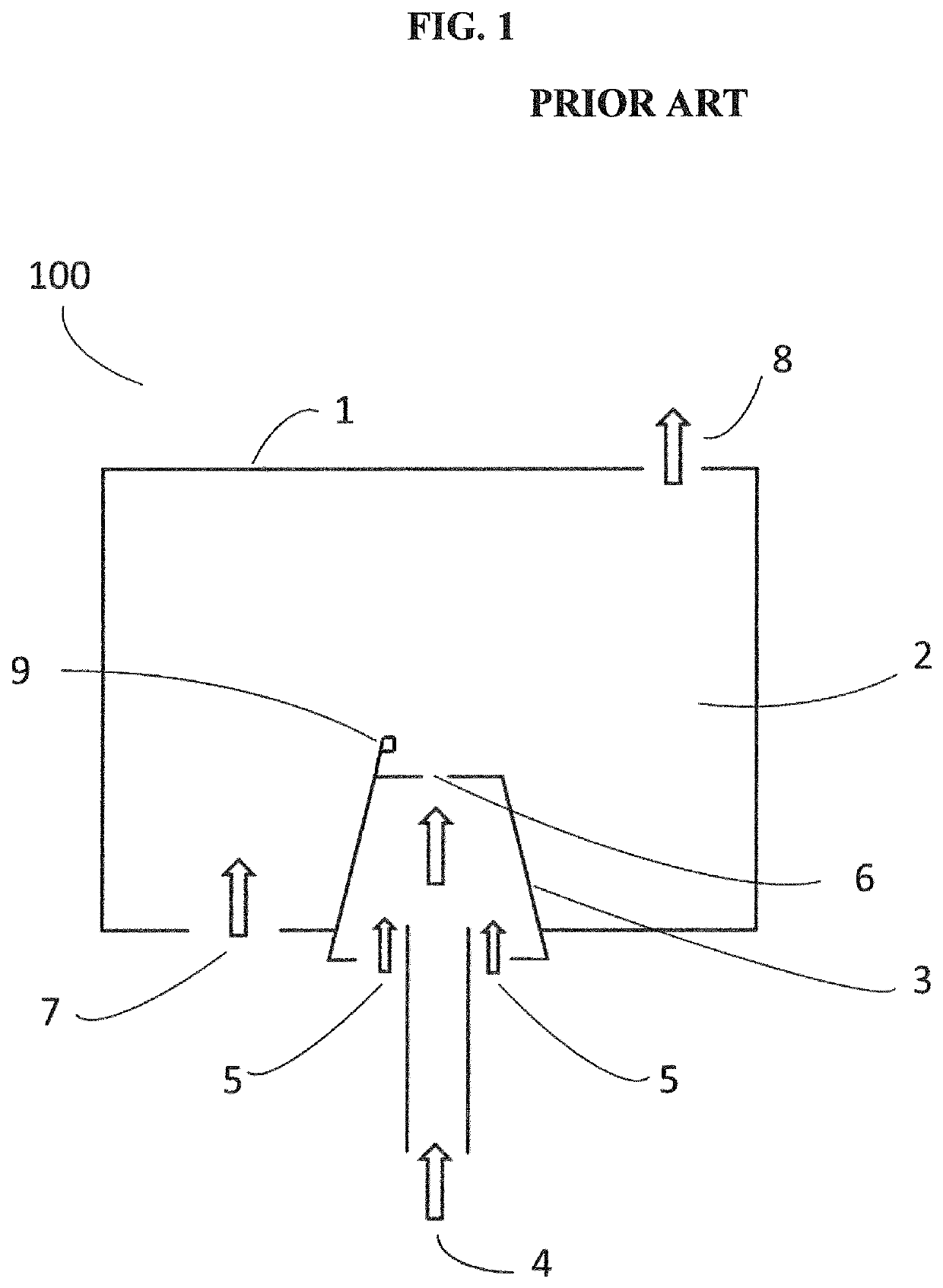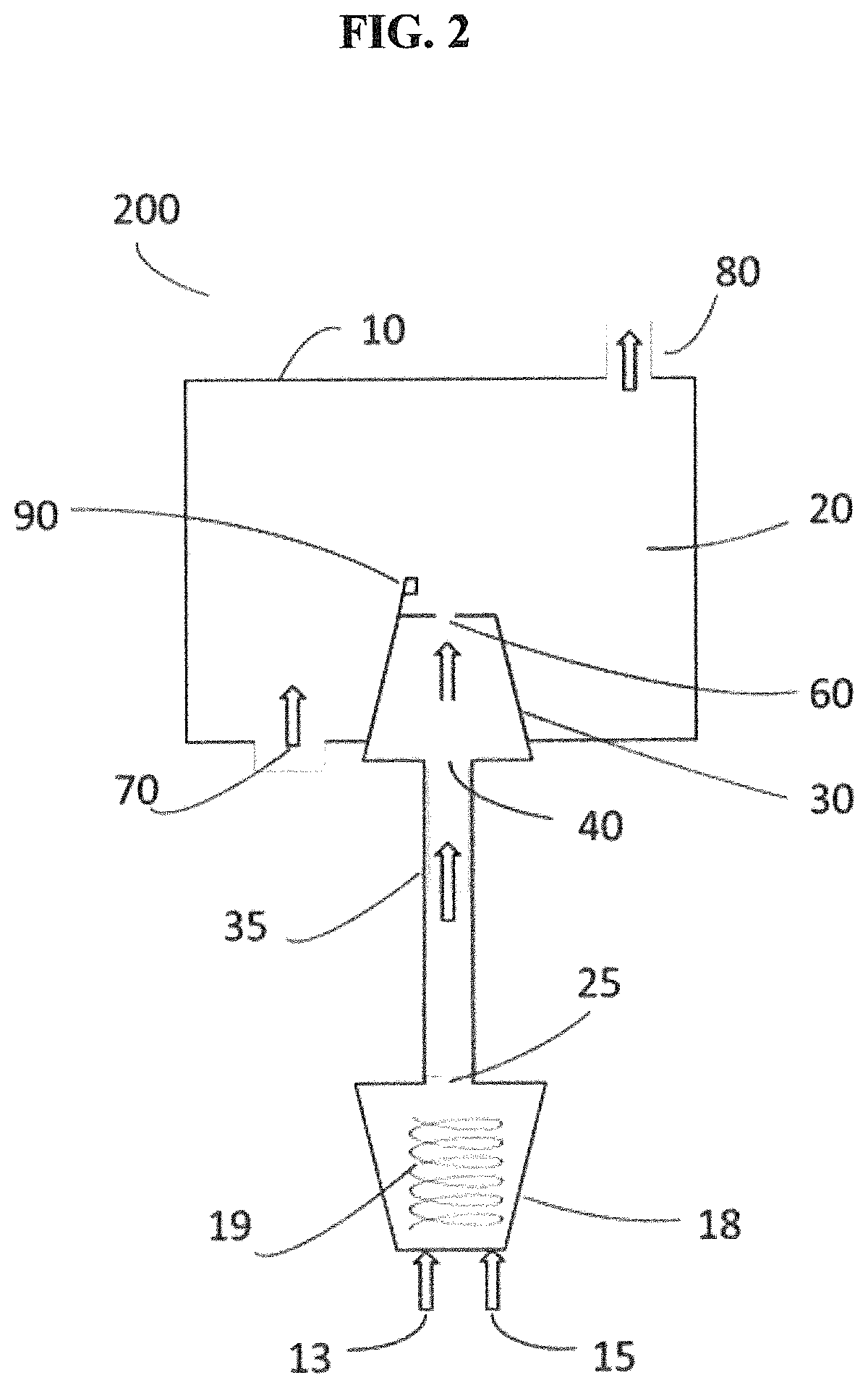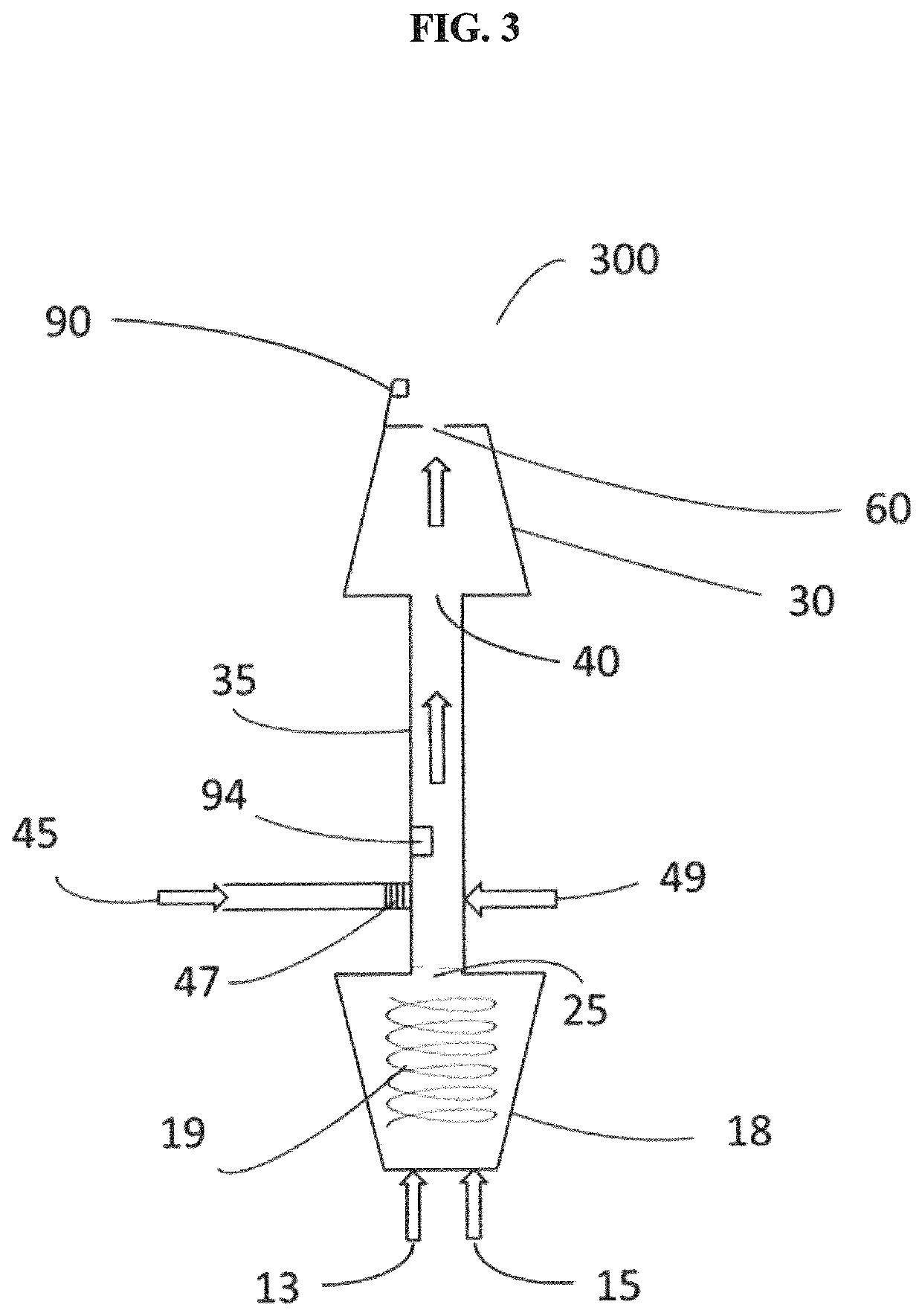Apparatus and method for operating a gas-fired burner on liquid fuels
- Summary
- Abstract
- Description
- Claims
- Application Information
AI Technical Summary
Benefits of technology
Problems solved by technology
Method used
Image
Examples
embodiments
Example 1 (E-1)
[0125]A reformer to be employed in an apparatus and method of this invention was evaluated to understand the Wobbe Index of a gaseous reformate produced. The reformer was sized for a 5 KWth input of JP-8 liquid fuel. Accordingly, the reformer was comprised of a Microlith® brand metal mesh substrate onto which a rhodium-based catalyst was supported (Precision Combustion, Inc., North Haven, Conn.). The metal mesh was rolled into a cylindrical coiled configuration and positioned within a closed reformer housing containing an inlet for feeding a supply of liquid fuel, an inlet for feeding a supply of air, and an outlet for exhausting a catalytic partial oxidation product stream comprising carbon monoxide and hydrogen. A glow plug was positioned within the inner diameter of the coil for aiding in the vaporization of the liquid fuel. As a general procedure the glow plug was energized; a flow of liquid fuel was initiated; then a flow of air was initiated in a fuel-rich ratio...
example 2 (
E-2)
[0129]A reformer was constructed and operated in a manner similar to the one described in Example 1, with the exception that the reformer was sized for a liquid fuel input of 14 KWth. Likewise, a Microlith® brand metal mesh substrate (Precision Combustion, Inc.) was employed, shaped into a cylindrical coiled configuration having an inner diameter and an outer diameter and a rhodium catalyst supported thereon. The composition of the exhaust stream was analyzed using gas chromatography. The exhaust consisted mainly of nitrogen, hydrogen and carbon monoxide. Based on the composition of the exhaust stream, a Higher Wobbe Index was calculated using the Equation at para. [0007] hereinabove, where the specific gravity of the fuel was calculated as the density of the exhaust gas composition versus the density of air, the latter taken as 1.2 g / ml at 20° C. and 101 kPa. Table 2 illustrates the composition of the gaseous reformate at a variety of fuel flows ranging from 6 g / min to 20 g / min...
example 3 (
E-3)
[0133]A griddle (Vulcan 24 RRG), designed for operation on natural gas, was connected to a reformer in accordance with this invention and operated on liquid distillate fuel. The griddle as obtained commercially comprised a standard gas burner closely similar to the type shown in FIG. 1, comprising the burner 3, an inlet 4 for feeding a supply of gaseous fuel, an inlet 5 for feeding air into premixture with the fuel, and a U-shaped tube comprised of a plurality of orifices 6 at which combustion occurred. The burner did not comprise a housing 20, air inlet 7, or exhaust outlet 8; but rather orifice 6 was simply open to ambient environs. The burner was modified to seal off inlet(s) 5 with a metal plug. By so doing, the griddle burner adopted the design of FIG. 2, illustrating burner 30, fuel inlet 40, and orifice 60.
[0134]The griddle so modified was connected to the reformer of Example 2, illustrated in FIG. 2 with reformer body 18, liquid fuel inlet 13, air inlet 15, catalytic rea...
PUM
 Login to View More
Login to View More Abstract
Description
Claims
Application Information
 Login to View More
Login to View More - R&D
- Intellectual Property
- Life Sciences
- Materials
- Tech Scout
- Unparalleled Data Quality
- Higher Quality Content
- 60% Fewer Hallucinations
Browse by: Latest US Patents, China's latest patents, Technical Efficacy Thesaurus, Application Domain, Technology Topic, Popular Technical Reports.
© 2025 PatSnap. All rights reserved.Legal|Privacy policy|Modern Slavery Act Transparency Statement|Sitemap|About US| Contact US: help@patsnap.com



